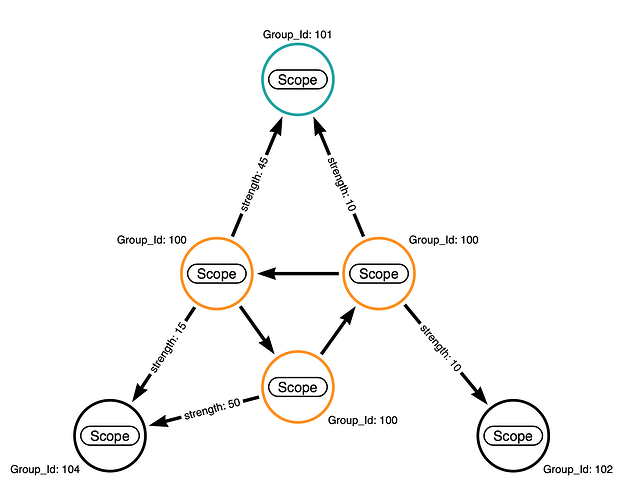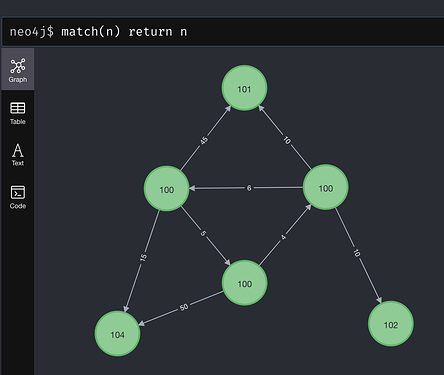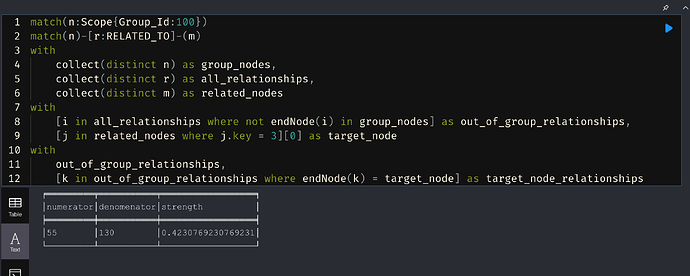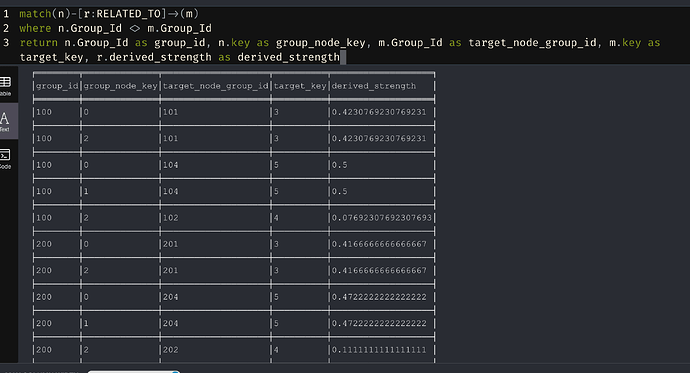Hello,
I have a graph made of companies (nodes) related to each other by transactions (edges). In addition to that, multiple companies might be related to each other because of capitalistic links (at this point I didn't translate that as a new edge type, but rather as a property of the node with a "Group_Id" property).
For some companies with a label "Scope", I'm interested in quantifying the strength of outgoing edges towards direct neighbors : this is easy because for each edge, I have a property that quantifies how strong that edge is for the sender company, so I can just look at that property (the property I'm speaking about is the ratio of the edge amount to all outgoing amounts for the node).
The problem comes when I try to quantify the strength of outgoing edges for a capitalistic Group, which is made of multiple companies. I want to know the strongest dependencies of that Group towards the outside (so I'm not interested in capturing the links between the companies belonging to that Group).
To summarize, here are the steps that I have in mind :
- Identify all companies with label "Scope"
- For those companies identify the "Group_Id" they belong to
- For those groups, identify the strongest relationships towards the outside at order 1 neighborhood
- Quantify the strength of the relationship : that would be the ratio between (1) sum of the outgoing amounts of the companies in the Group towards a specific neighbor and (2) sum of total
outgoing amounts of the Group - Create a new property for each company in the Group which is the strength of the relationship calculated in 4.
Anyone has an idea of what the Cypher query should look like ?
Thank you very much !







